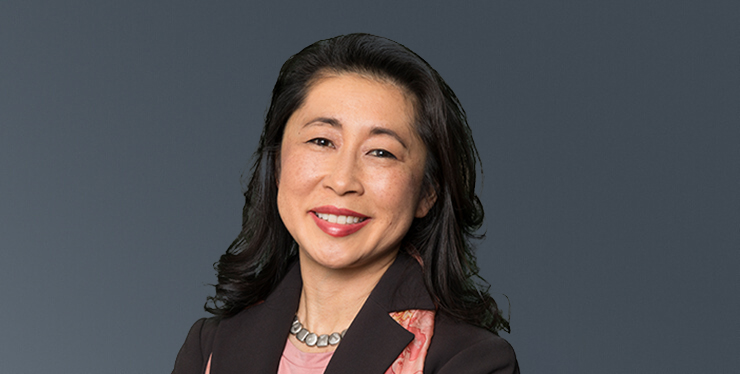
Strategic leapfrogging: Moving past AI maturity models with diagnostic precision
Transform your AI adoption strategy from a high-stakes gamble into a portfolio of calculated moves using this plan, write Faisal Hoque and Paul Scade....

by Tomoko Yokoi, Michael R. Wade Published November 17, 2025 in Artificial Intelligence • 5 min read
As organizations race to operationalize generative AI at scale, a clear link is emerging: AI maturity and ethical awareness go hand in hand. A review of the top 10 companies across 10 industries in IMD’s 2025 AI Maturity Index shows that firms with publicly disclosed AI ethics principles, dedicated governance roles, or embedded oversight structures now feature in nearly all sectors. These range from ethics boards in healthcare and insurance to C-suite appointments in automotive and technology, as well as cross-functional audit systems in finance and telecoms.
IMD’s AI Maturity Index assesses how the top 300 companies in Forbes’ 2025 Global 2000 List are advancing their AI strategies. The index charts each organization’s AI maturity across five key dimensions. One of these dimensions focuses on the responsible use of AI, which relies on robust ethical governance through ethics committees, guiding principles, and oversight structures that ensure accountability. To evaluate this dimension, we benchmarked company disclosures against leading frameworks such as UNESCO’s Ethical Impact Assessment (EIA) using a combination of qualitative review and machine learning – based content analysis.

Our analysis shows that ethics around AI is no longer a niche concern. In the automotive sector, Mercedes-Benz and Honda stand out for their comprehensive AI ethics charters, which position safety, fairness, and human control as foundational principles. Mercedes-Benz has begun auditing its AI copilots, and Kia has embedded AI ethics within its “Transparent & Trustworthy” corporate pillar. General Motors took an additional step in May 2025 by appointing a legal and ethical oversight lead – one of the first such roles in the industry – signaling a move toward institutionalized AI risk management.
In insurance and financial services, ethics frameworks are becoming deeply integrated as firms contend with the societal and regulatory implications of algorithmic decision-making. Zurich Insurance, AXA, and Goldman Sachs publish AI governance principles that emphasize fairness and explainability. Mastercard and Ping An extend this approach by combining risk analytics with human-in-the-loop systems to maintain accountability in automated processes.
In healthcare and pharmaceuticals, sectors already subject to strict oversight, responsible AI is now embedded in clinical workflows. Roche and AstraZeneca enforce traceability in AI-assisted diagnostics and drug discovery, while Sanofi links its AI governance directly to patient safety and scientific integrity.
Meanwhile, tech giants like Microsoft, Nvidia, and IBM are now shaping ecosystem norms through their own AI safety frameworks. Microsoft’s Responsible AI Standard is referenced across sectors and IBM’s watsonx platform includes built-in explainability and bias detection features.
While AI ethics is broadly acknowledged, the depth of implementation varies significantly.
While AI ethics is broadly acknowledged, the depth of implementation varies significantly. Some companies articulate clear commitments, but details on enforcement or audit mechanisms remain vague. Others, like Siemens, Roche, and Meta, back their principles with formal boards, cross-functional training, and third-party assurance.
Regional and sectoral cultures also shape approaches. European companies (e.g., AXA, Deutsche Telekom, Roche) often align with GDPR, the OECD, or the EU AI Act. Asian firms like Kia and Ping An exhibit strong national alignment, while U.S. firms tend to adopt principle-based, innovation-friendly governance structures.
What unites the leaders is not simply having a code of ethics but treating AI ethics as a core organizational competency, one that links legal compliance, brand trust, and strategic resilience.

Embedding ethics into AI development is not just good governance but smart business. Consider AstraZeneca and Merck, which use ethical governance to de-risk AI-assisted clinical trials, accelerating time-to-market. Or Ping An and Zurich, which build customer trust by explaining algorithmic decisions in underwriting and claims. Or NVIDIA and Microsoft, whose AI platforms gain adoption partly because they offer clear, responsible deployment pathways for customers.
As Generative AI applications become more ubiquitous, ethical governance will only grow in importance.
As Generative AI applications become more ubiquitous, ethical governance will only grow in importance. Executives must move beyond compliance checklists toward proactive, cross-functional strategies. This means investing in:
In a world where trust is a competitive asset, AI maturity will increasingly depend on how willing organizations are to govern it.
Access the 2025 AI Maturity Index white paper to learn more: AI strategies that are working.

Researcher
Tomoko Yokoi is a researcher and senior business executive with expertise in digital business transformations, women in tech, and digital innovation. With 20 years of experience in B2B and B2C industries, her insights are regularly published in outlets such as Forbes and MIT Sloan Management Review.

Professor of Strategy and Digital
Michael R Wade is Professor of Strategy and Digital at IMD and Director of the Global Center for Digital and AI Transformation. He directs a number of open programs such as Leading Digital and AI Transformation, Digital Transformation for Boards, Leading Digital Execution, Digital Transformation Sprint, Digital Transformation in Practice, Business Creativity and Innovation Sprint. He has written 10 books, hundreds of articles, and hosted popular management podcasts including Mike & Amit Talk Tech. In 2021, he was inducted into the Swiss Digital Shapers Hall of Fame.

February 18, 2026 • by Faisal Hoque, Paul Scade in Artificial Intelligence
Transform your AI adoption strategy from a high-stakes gamble into a portfolio of calculated moves using this plan, write Faisal Hoque and Paul Scade....

February 18, 2026 • by Michael Yaziji in Artificial Intelligence
Organizations should let departments choose the right balance between humans and AI, and focus on outcomes, not rigid processes, to keep pace with rapid technological change. ...

February 17, 2026 • by Julia Binder in Artificial Intelligence
CSOs should harness artificial intelligence to embed sustainability at the center of strategy and growth. We explore how the most successful companies are already doing this. ...

February 12, 2026 • by Karl Schmedders, José Parra Moyano in Artificial Intelligence
Finance and digital strategy experts debate whether AI returns will materialize quickly enough to prevent a market correction. ...
Explore first person business intelligence from top minds curated for a global executive audience